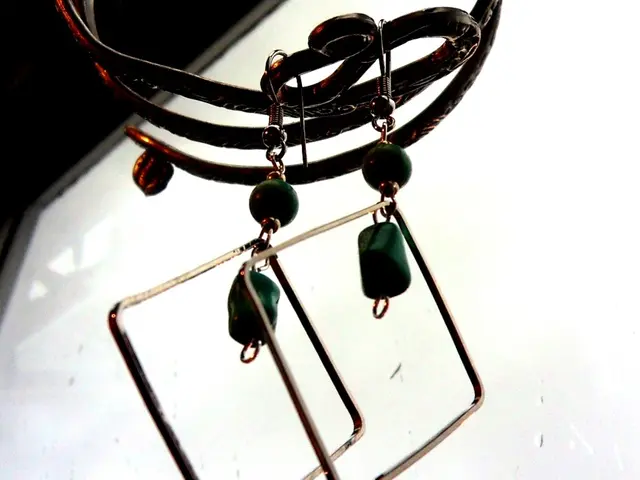Struggling with Body Image? Insight into Body Dysmorphic Disorder
So, you're staring at your reflection and it feels like a stranger? That's Body Dysmorphic Disorder (BDD) for you.
BDD is more than just being self-conscious; it's an intense preoccupation with perceived flaws in your appearance, turning into an overwhelming mental struggle. Around 2% of the population faces this battle, and it usually starts at a time when self-image is already under the magnifying glass - adolescence.
What's Up with BDD?
BDD isn't just about the mirror; it's about the mind. These perceived flaws are often minor or nonexistent, but they seem magnified to someone with BDD. The American Psychiatric Association explains it all.
BDD's Red Flags
- Incessantly pondering about one or more imaginary or slight flaws
- Compulsively checking your reflection or even avoiding mirrors
- Excessively grooming, camouflaging, or seeking reassurance from others
- Significant distress or impairment in daily life due to these issues
Why Does Brain Go Skewwhacky?
A web of complex factors causes BDD. Though the exact cause is unknown, research suggests factors that play a part.
Factors Galore
- Biological factors: Abnormalities in brain functioning and genetics come into play
- Psychological factors: Perfectionism, low self-esteem, and trauma from childhood like bullying contribute to BDD
- Environmental influences: Living in a society obsessed with unrealistic beauty standards doesn't help, especially with the help of social media serving as a comparison trap
BDD Myths Busted
Don't let misconceptions cloud your mind. Here are the facts.
Getting the Truth Straight
- "It's Just Low Self-Esteem": While low self-esteem contributes, BDD is a diagnosable mental health disorder
- "Everyone Feels Ugly Sometimes": Sure, we all have rough days, but BDD's distress is persistent and severe, often impacting daily life
- "Aesthetic Surgery Fixes All": Wrong. Surgery rarely helps and may even worsen symptoms as it reinforces obsessive thoughts about appearance
Emotional Rollercoaster
Living with BDD can be exhausting. Apart from the distress, it often brings alongside anxiety, depression, and obsessive-compulsive tendencies. Severe cases even lead to self-harm or suicidal thoughts.
Hello, Hope!
BDD may seem like an unbeatable battle, but recovery is within reach. Understanding BDD, seeking professional help, and creating a supportive environment can help individuals reclaim their lives from the grip of obsessive self-criticism.
Remember, beauty is diverse and unique. What truly defines us isn't our reflection - it's our actions, feelings, and the impact we make on the world.
Time to Tackle BDD
Armor Up
- Therapy: CBT and support groups offer a chance to challenge distorted thoughts, reduce compulsive behaviors, create a support system, and rebuild a healthy relationship with your appearance
- Medication: Anti-depressants can help regulate obsessive thoughts and reduce anxiety
- Mindfulness and Self-Compassion: Practices like mindfulness meditation and self-compassion exercises can help individuals become more accepting of their bodies
- Limit Social Media: Setting boundaries on social media can prevent appearance-related anxiety
BDD may be a beast, but with the right support, you can tame it and live a fulfilled life. You're more than your reflection; embrace your worthiness beyond the mirror.
- Criticism towards perceived flaws can turn into an overwhelming mental struggle, and this intense self-consciousness is known as Body Dysmorphic Disorder (BDD).
- Understanding that BDD isn't merely about the mirror, but about the mind, is crucial in addressing the disorder.
- Incessant thoughts about one or more imaginary or slight flaws, compulsively checking reflections, excessively grooming, and seeking reassurance from others can indicate BDD.
- Factors like biological abnormalities in brain functioning, genetics, perfectionism, low self-esteem, childhood trauma, and societal pressure focusing on unrealistic beauty standards could contribute to the development of BDD.
- Contrary to popular beliefs, BDD is a diagnosable mental health disorder, not just low self-esteem, and it can have devastating effects on an individual's daily life.
- Therapies such as CBT, medication, mindfulness meditation and self-compassion exercises, limiting social media use, and creating a supportive environment can all play a role in managing BDD and achieving recovery.
- Embracing CBD (an understanding that beauty is diverse and unique, focusing on actions, feelings, and the impact we have on the world) is crucial in overcoming BDD and living a fulfilling life, beyond the mirror.








